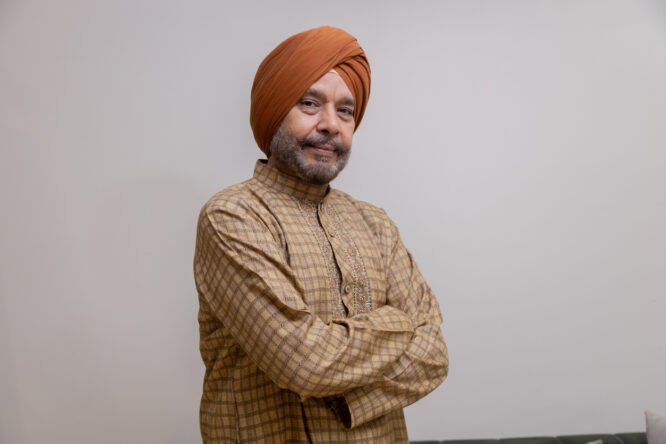Not every boomer is bitter toward Gen Z, but unfortunately, plenty of them have a chip on their shoulder.

While some of it comes from generational misunderstanding, a lot of it is rooted in deeper frustrations about how the world has changed. From evolving values to different work habits, Gen Z has challenged what many older people thought was “the way things are.” Whether it’s fair or not, here are some brutally honest reasons so many boomers seem bitter about Gen Z.
1. Gen Z doesn’t chase the traditional 9-to-5 dream.

For many boomers, the 9-to-5 job with benefits and a retirement plan was the ultimate goal. That path represented stability and success, and sticking with one employer for decades was something to be proud of.
Gen Z, however, is redefining what success looks like. They’re more open to freelancing, remote work, and career hopping. To older people, this can come off as lazy or non-committal, but to younger ones, it’s about freedom, mental health, and refusing to burn out in the name of loyalty.
2. They talk openly about mental health.

Boomers were raised in a time when emotions were swept under the rug. Talking about anxiety, depression, or therapy just wasn’t done—and if it was, it came with stigma.
Gen Z has flipped that script. They’re open, honest, and even humorous about mental health, which can feel jarring or overly sensitive to older generations, who were taught to tough it out. It’s not that boomers don’t care, it’s just a totally different cultural language.
3. Gen Z expects work to accommodate their lives, not the other way around.

Boomers grew up with the idea that you fit your life around your job. You showed up no matter what, and complaining about burnout made you seem weak or entitled.
Gen Z sees it differently. They want jobs that respect their boundaries, and they’re not afraid to say no to hustle culture. That attitude can read as entitled or unrealistic to older people, even though it often stems from a desire for balance, not laziness.
4. They challenge authority without hesitation.

Boomers were raised to respect authority, whether it was a boss, a teacher, or a parent. Speaking up could get you labelled as disrespectful or difficult.
Gen Z doesn’t hesitate to question the system. They want transparency, fairness, and accountability, and they’re quick to call out behaviour that feels outdated or unjust. This might seem like rebellion, but to them, it’s just being honest and standing up for what matters.
5. Gen Z doesn’t care about “paying dues” the same way.

Many boomers started at the bottom and worked their way up, often enduring years of underappreciated effort before being promoted or recognised. That long climb was part of the pride of “earning” your place.
Gen Z is less patient with outdated hierarchies. If they can bring value now, they expect to be seen and rewarded now. This mindset can ruffle feathers with older people who feel that younger workers are trying to skip steps or bypass hard work.
6. They don’t idolise the past.

Boomers often look back on “the good old days” with nostalgia, whether it’s about music, community values, or how things “used to be simpler.” That nostalgia can sometimes be tinted with frustration about how much the world has changed.
Gen Z doesn’t see the past as a golden era; they see it as flawed, exclusionary, and filled with outdated systems. That kind of realism can feel like disrespect to Boomers who view their youth with fondness and pride.
7. Gen Z is more focused on systemic change.

Boomers were taught to focus on personal responsibility—work hard, save money, and pull yourself up by your bootstraps. Talking about bigger systemic issues wasn’t always part of the conversation.
Gen Z often looks at the bigger picture. They talk about inequality, privilege, climate change, and social justice as interconnected problems that need more than just individual effort. Boomers can see this as excuse-making, when in reality, Gen Z just wants change to go deeper than personal choices.
8. They’re more comfortable calling out bias and discrimination.

Topics like race, gender identity, and privilege were often considered “too political” or “too personal” in boomer workplaces or dinner tables. Silence was seen as a way to keep the peace.
Gen Z is more vocal, more aware, and more willing to speak out, even if it makes people uncomfortable. For boomers, it can feel like walking on eggshells, but for Gen Z, it’s about making space for everyone, not just the status quo.
9. Gen Z is online in a way boomers never were.

While boomers had to learn the internet later in life, Gen Z grew up immersed in it. Social media, digital communities, and meme culture shape how they communicate, learn, and express themselves.
To many older people, that constant online presence feels foreign, superficial, or even pointless. But for younger ones, it’s how they find connection, information, and even purpose. The digital divide is real—and it often leads to judgement on both sides.
10. They don’t hesitate to quit jobs that don’t serve them.

Sticking with a job through thick and thin was a boomer badge of honour. Even if you hated it, you stayed—because quitting could make you seem ungrateful or unreliable.
Gen Z doesn’t share that mindset. If a job is toxic, doesn’t align with their values, or isn’t paying fairly, they’re out. It’s not about being flaky—it’s about not wasting years on something that drains them. A lot of older people can take this as a lack of commitment, even when it’s just a different kind of self-respect.
11. Gen Z is more expressive—and less filtered.

From dyed hair and tattoos to casual speech and TikTok rants, Gen Z is more open about who they are and less concerned with traditional expectations of professionalism or appearance.
Boomers, raised in a more formal and filtered era, often see this as immature or attention-seeking. But for Gen Z, it’s about authenticity and freedom of expression. They’re not trying to shock; they’re just not hiding who they are.
12. They value flexibility over tradition.

From remote work and unconventional career paths to rethinking marriage and home ownership, Gen Z isn’t following the same rulebook. They’re questioning everything boomers were told to strive for.
To people from earlier generations, this can look like aimlessness or lack of ambition. But to younger people, it’s about building a life that actually fits their values and mental health, not just ticking boxes for the sake of it.
13. Gen Z sees through performative authority.

Respect isn’t automatically granted anymore—it has to be earned. Gen Z won’t blindly respect a boss, teacher, or politician just because of their title. They expect authenticity, transparency, and accountability.
This challenges the traditional structures boomers often worked within. Being questioned by someone younger can feel like an insult, but for Gen Z, it’s about fairness, not defiance. They want leaders who lead by example, not just by rank.




